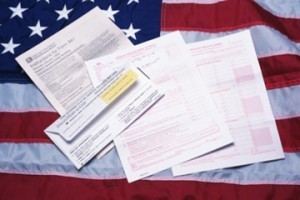The Amazon Tax
 Recently, someone asked where they could find new authors, and new e-books. I jumped at the opportunity, wrote down a description of two of my books, and put up links to the Gumroad pages for them.
Recently, someone asked where they could find new authors, and new e-books. I jumped at the opportunity, wrote down a description of two of my books, and put up links to the Gumroad pages for them.
Gumroad
Now let me back up a minute, because I know some people aren’t familiar with Gumroad. If you already are, feel free to skip ahead. You see, Gumroad doesn’t deal in books, e-books, publishing, or any of that. All they do is distribute digital files, and they do it really well. They handle payment systems better than Amazon (they can take purchases from anyone in the world, and they don’t have different sites for different countries), they fulfill the digital orders well, and they even provide a good storefront for the producer.
Better still, they only charge 5% (with an additional $0.25 per transaction). This means that, if I sell a book for $4.99, I only get $3.49 from Amazon, but I get $4.49 from Gumroad. That’s about 28% more money per sale.
But it gets better. What I sell on Gumroad is a zip file that has ALL the formats. On Amazon, you only get a mobi file, but on Gumroad, you get everything. Mobi, EPub, PDF, RTF, TXT, HTML. And all of it DRM-free. When you buy from Gumroad, no one can ever take it away from you.
So Gumroad is better for the reader, it’s better for the author, it’s better for everybody. But let’s get back to our story.
The 800-pound Gorilla
After I put up the links to my books on Gumroad, the person who was asking where she could find new books said, “Oh, I found it on Amazon for only $3.82!” So she bought it there. Even when I provided a link to the system that worked better for more people in more places, she chose to buy it from Amazon, partially because it was cheaper.
But why is it cheaper? Where did that $3.82 come from? I wondered the same thing. I’m self-published, and as such, I make my own prices on the things that I sell. For some reason, though, Amazon decided to cut my price by 23% without asking or informing me. It just happened one day, and nothing I did could change it. So I’m stuck with it. The options they are apparently giving me are :
Suck it up, cupcake. If you want to work with Amazon, you work with their rules. They don’t have to explain it to you. They don’t owe you a thing.
Pull the book. Sure, you can make all your sales on Smashwords and Gumroad. Ha! You know that 90% of your sales come from Amazon. You’re shooting yourself in the foot if you try to leave us.
I want to encourage people to use Gumroad. I want to encourage them to use Smashwords. I want them to use iBooks and B&N and Google Play, and all the other places you can find the books. In short, I want to encourage diversity.
So I had this idea.
When a country wants to encourage a behavior, they use the monetary equivalent of the carrot and stick. They subsidize behaviors they like, and they tax those that they don’t. And while it might seem like hubris to compare myself to a nation, I believe I have a small amount of power over this little island of intellectual property. So roars the mouse.
I’m going to increase the cost of my books on Amazon until they match the profit that I get from other venues. If I only get 70% from Amazon, but 95% from Gumroad, then I will “tax” Amazon buyers by making them pay more to cover the loss. And wherever possible, I will point them to the safer, easier, cheaper, and more convenient buying opportunities out there.
With a book priced at $4.99 on Gumroad, I make $4.49 per sale. In order to get the same amount of profit from Amazon (at 70%), I would have to raise the price to $6.41. As much as I hate to do it, I feel like I have to take some step to get back that freedom for pricing, and to get consistent profit.
Besides, people are always telling me that they equate worth with cost, so this can only help my sales, right?
What do you think?



